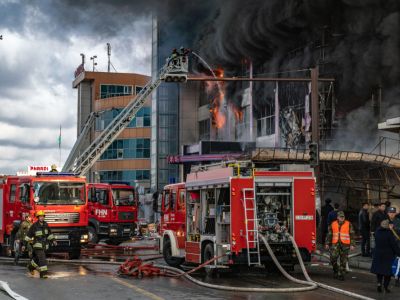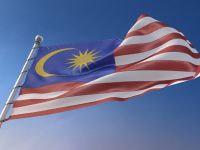US President George W. Bush -- his Air Force One jet zigzagging across the country as a safety precaution after the worst terror attacks in history left smoldering rubble in New York and Washington -- reached out during the crisis to possibly his best adviser: his father.
Confirming the September 12 conversation, White House spokesman Ari Fleischer explained: "When the president speaks with his father, he speaks with him as a son and also as someone who speaks with former presidents."
The connection runs deep: Bush, just the second son in US history to also win the White House, has surrounded himself with top foreign policy aides to his father and now faces a task similar to one of his father's defining challenges.
Just a decade ago, former president George Bush stitched together a US-led international coalition to oust Iraqi forces from the tiny, oil-rich nation of Kuwait, promising: "This will not stand, this aggression."
"Terrorism against our nation will not stand," his son echoed this week as he marshaled US might and global support for what may be a years-long campaign against global terrorism after hijackers crashed fuel-laden jetliners into the twin World Trade Center towers and the Pentagon.
After fears of a dragged-out conflict costing vast amounts of US treasure and countless lives of US troops, a deadly air war and swift ground campaign earned the former president the highest job approval ratings in US history.
US troops have yet to fire their first shot, but the younger Bush's job approval ratings have jumped to 86 percent, the fourth-highest in US history, according to the Gallup polling organization. The study had a three-percentage-point error margin.
Bush also knows his father's soaring ratings melted away and his re-election bid failed after the United States plunged into recession -- something Bush is trying to guard against, amid signs of a weakening US economy, by urging a "back-to-work" attitude in the wake of the recent tragedy.
Many of the top White House aides shaping Bush's response did the same for his father: Vice President Dick Cheney, who is now being referred to as "war minister" in some political circles, was defense secretary under the first Bush.
National security adviser Condoleezza Rice worked on the elder Bush's National Security Council.
US Secretary of State Colin Powell was chairman of the joint chiefs of staff a decade ago.
Bush and top advisers have carefully placed blame for the terror strikes on one man: Saudi-born extremist Osama bin Laden. The former president heaped invective on the man he publicly named "Saddam" -- Iraqi President Saddam Hussein.
But there are also profound differences in both approaches: The elder Bush was a Washington veteran who had served as US ambassador to the United Nations, US ambassador to China, director of the Central Intelligence Agency and vice president.
His son, in contrast, was an oil executive and part-owner of a baseball team before becoming Texas governor in 1994.
Even as the US Congress and the US public have rallied firmly behind the inexperienced president, his seasoned advisers have insisted that Bush was even quicker than they were in shifting into crisis-response mode and grasping the ramifications of the strikes on the World Trade Center's now-leveled twin towers and the Pentagon.
"I think it was much quicker with him than it probably was with any of the rest of us," Rice told reporters.
"In his very first statement to his National Security Council, he said, ... 'We're going to get through our period of mourning -- but we're not going to lose focus and resolve on what happened here and what this means for the United States of America, in its leadership role, to mobilize the world now to deal with this scourge,'" she said -- WASHINGTON (AFP)
© 2001 Al Bawaba (www.albawaba.com)









